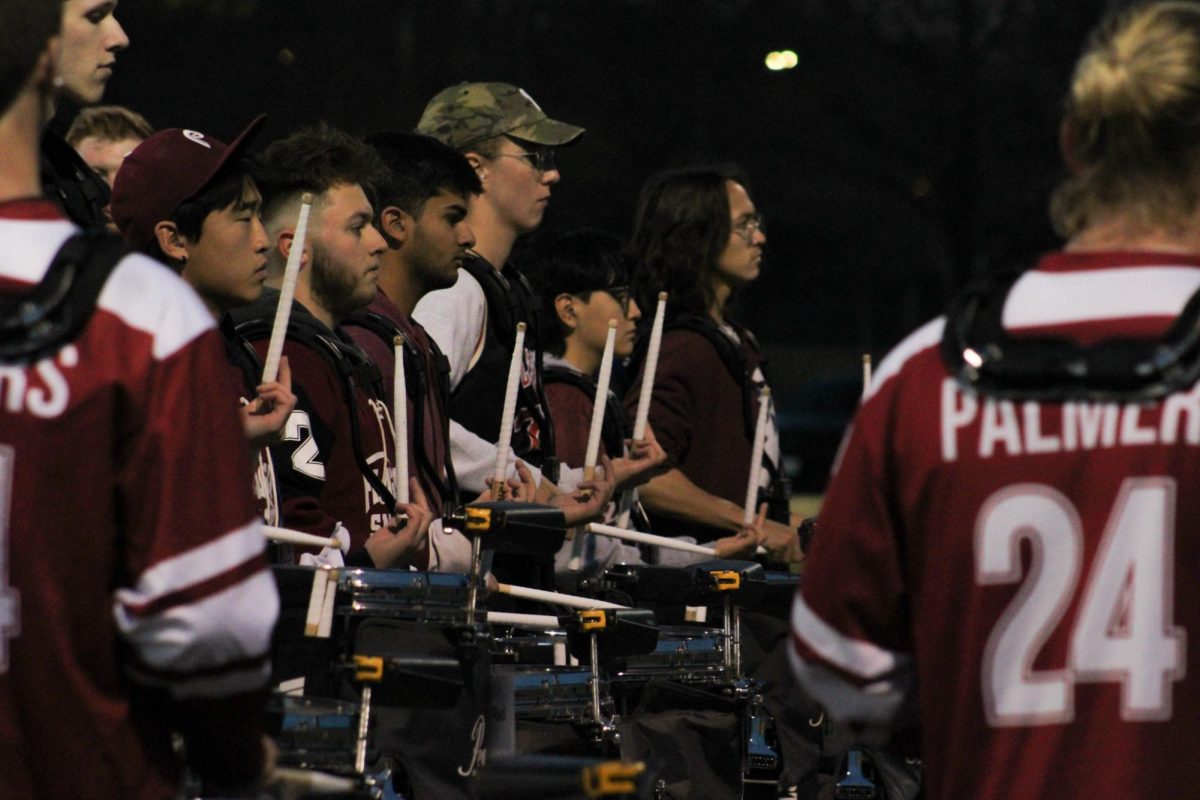
Though its typically lengthy track lengths and total eschewing of typical pop structures (verses and choruses, beats) make it inherently confrontational in a way, ambient music is rarely thought of as a genre that can aggressively challenge your perceptions of music. The best works of the genre can challenge pre-conceived notions, but they do so quietly.
The slow, subliminal evolutions of William Basinski’s “The Disintegration Loops” can make one see music as something physical; something that can slowly transform and decay without the listeners realizing it. Brian Eno and Erik Satie’s classic works treated music as furniture, art that’s meant to blend seamlessly into and support other tasks and activities. Strains of the sort of gorgeous, minimalist soundscapes of Aphex Twin’s “Selected Ambient Works Volume II” can be heard in just about every extant form of visual media (advertisements, films, television and video games) today. Somewhere in between Basinski and Eno, those soundscapes are meant to be taken in and appreciated, but eventually regarded as just as much a part of the picture as any of the people or things on screen.
“Mono No Aware,” a new compilation from Berlin-based label Pan, is just as challenging as these landmarks, but has no fear of confrontation. Rarely during its 80-minute run will you ever feel comfortable enough to let your mind slip away entirely to studying, writing, cleaning or whatever other task you might be engaged in while taking it in. Bold and innovative, “Mono No Aware” is a collection of artists unafraid of smashing aside even the generously wide boundaries offered by the electronic and ambient genres. More than a mere compilation of B-sides, it’s a challenging look into an uncertain future.
The album’s (it plays out far more like a typical, cohesive album than your normal grab-bag label compilation) sly nature is evident from its opening seconds. The eager IDM pulses of Kareem Lofty’s beautiful “Fr3sh” give off an almost traditional impression, one that encourages you to press play and quickly put “Mono No Aware” into the background of your mind. This continues with the quiet, measured grandeur of the first two minutes of Malibu’s “Held,” which swells and dissipates with composed, synthetic swells.
Suddenly though, the song disintegrates into an unsettling spoken word piece, backed up only by the sound of (what sounds like) a child’s heavy, troubled breathing and footsteps. The footsteps and breathing are uneven, suggesting that the source of the breathing was fleeing something or someone. Before you’re given too long to contemplate the sound though, the spoken words turn into vocals, ethereally sung over a wash of heavy reverb and dreamy guitars. Though this transformation is pleasant enough, its serenity is clouded by the troubled breathing from before, a tension that’s left unresolved as the album transitions to Yves Tumor’s “Limerence.”
The synths on “Limerence” are deceptively bright, almost bubbly. They swirl though, around recordings of an anonymous woman first jokingly asking, then almost pleading with her boyfriend to appear in a home video she’s recording. What’s first a comforting gaze at cozy domesticity becomes a disquietingly intimate look at the insecurities that can often arise in relationships. Through this marked shift in tone, the background remains maddeningly, coldly indifferent to the changes that go on around it. It’s a beautiful duality: the music acting as a stoic frame, and the voices a vessel through which the peaks and valleys of a relationship are explored.
The compilation never turns back from this disquieting shift, seeming to lunge out for your attention the moment you begin to let it dissipate into the background. Ayya’s “Second Mistake,” the album’s longest and perhaps simplest cut, is little but an unnerving, minor-key chord progression that creeps into your head slowly, despite its repetitive nature.
Mya Gomez’s “Justforu” is like a Godspeed You! Black Emperor epic that begins right at the terrifying climax, assaulting you straight away with organs and synthesizers run amok. Even as the chaos subsides slightly, you’re left in a state of tense anticipation, with the feeling that the mellow keyboard noodling and atmospheric, wordless vocals that carry the song to its conclusion can give way to the earlier chaos at any moment.
Bill Kouligas’ “VXOME” too, opens with a jarring burst, this time one of distinctly atonal static, while the somber, parlor room piano of Jeff Witscher’s “ok, American Medium” is first threatened, then completely overwhelmed by, a storm of dissonance. James K’s “Stretch Deep,” thoroughly dominated by sax squealing, blurs the fairly significant line between free jazz and ambient. Then, just as it begins so unassumingly, the collection settles back into a more tranquil state as it closes with the beautifully at ease “Zhao Hua,” by HVAD and Pan Daijing.
The final effect of this gripping trip through some of the most experimental, mysterious corners of the electronic music world is stirring. Though little unites these 16 tracks at face value, a couple of listens reveal just how few points of comparison there are to this otherworldly group of genre-flouting pieces of music. “Mono No Aware,” released March 17, ends up feeling less like a compilation of talented but obscure musicians operating on the fringe than a disconcerting, tantalizing look into an uncertain future.
Jackson Maxwell can be reached at [email protected] and followed on Twitter at @JMaxwell82.


















